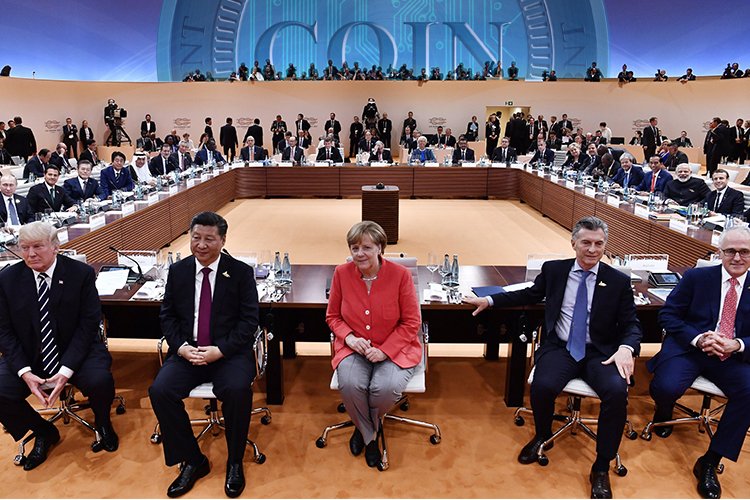G20: Generals Are Preparing For The War That Has Passed

Representatives of the G20 member countries published a document on the development of a unified system of legal regulation of the digital market. For the moment, the text resembles only an agreement of intent, but the very fact of discussing the issue of the institutionalization of virtual currencies at such a high political level suggests the transformation of the global economy. Politicians are strong in admitting obvious facts.
“We will continue to monitor and, if necessary, deal with emerging risks and vulnerabilities in the financial system; and, continuing cooperation in the field of regulation and supervision, to solve the problem of fragmentation. We hope for the further progress in achieving sustainable non-banking financial intermediation,” - the official statement of G20 said.
We wonder what high politicians call “fragmentation”. Is it scalability? Or decentralization? Time will show. In the meantime, it is unequivocally clear that the meeting participants agreed on specific proposals on legislative support for the turnover of digital assets, taxation of business, and crypto assets, as well as on their inclusion of measures to counter money laundering in the system. These points will be considered at the next G20 meeting. The final texts of the documents are planned to be adopted only in 2020. Do we need to remind that a year is almost an eternity for the new economy, and by the time it is adopted, the situation in the digital reality may change beyond recognition, and the document will be initially irrelevant?
The market never waits for bureaucracy and always looks for the workaround, often unfair, ways of meeting emerging demand. Cryptocurrencies are not the first example in history when legal regulation went fatally behind the rapidly developing progress and the commodity market. Politicians and law enforcement officers do not like to recall the early 20s of the last century, when cocaine was sold in almost every American pharmacy without a prescription, as a cure for depression. And in Germany, it was banned only in 1971. Although, from the middle of the 19 century, doctors and pharmacologists were aware of the harmful effect of this drug on the human body. Many unsuspecting people who needed help found themselves drawn into the use of a dangerous stimulant, and politicians, having banned trade with such a delay, in fact, gave rise to the drug mafia.
Or another example: in order to regulate the number of harmful emissions into the atmosphere from enterprises and vehicles, bureaucrats needed decades of consultation and coordination. But even after the appearance of the Kyoto Protocol and the Paris climate agreements, not all countries are in a hurry to comply with them, but an excellent mechanism for speculating on emission quotas emerged.
An identical story can happen to the virtual currency market. While politicians decide how to deal with it, it exists, develops, despite bitcoin crash and other digital assets overall capitalization decrease, and is fixed in the economic space of different countries. Needless to say that politicians are forced to react at the local level so that the turnover of crypto assets does not go into the shadows once and for all and does not generate a new uncontrollable organized crime group.
It turns out that all global initiatives faced one and the same obstacle: the superiority of national interests over global ones. Although on paper everything is exactly the opposite: in almost all local normative systems, the advantage of international acts and agreements over local laws is declared. However, as we could see above, international law could not be realized as a legal instrument of direct action.
And here is the latest example from real legislative practice: while the G20 participants are discussing how to tax cryptocurrencies, the Spanish Council of Ministers obliges investors to declare all virtual assets, regardless of regulatory jurisdiction.
With the help of this initiative, the financial authorities of the country are going to attract about $1 billion to the state treasury in order to reduce the catastrophic budget deficit. It is assumed that crypto-businesses will pay "Tobing tax" (the tax on final profits at the end of the trading day, without taking into account the number of transactions), and 200 specially trained inspectors will be in charge for monitoring the accurate and timely transfer of funds. It is planned that this amount will be enough with the current fill of the crypto-market players.
Now, no matter how many documents G20 adopts, Spain is unlikely to change its system of taxation of digital assets: a billion dollars will overweight any authority.
Cabinet generals are always preparing for the war that has passed - this story is repeated from time to time. It is good that cryptocurrencies are finally recognized by heads of states and governments but it was necessary to regulate them at the G20 level yesterday; and today and particularly tomorrow, this control may turn out to be out of date. Dear heads of states, the global economy will change without you.